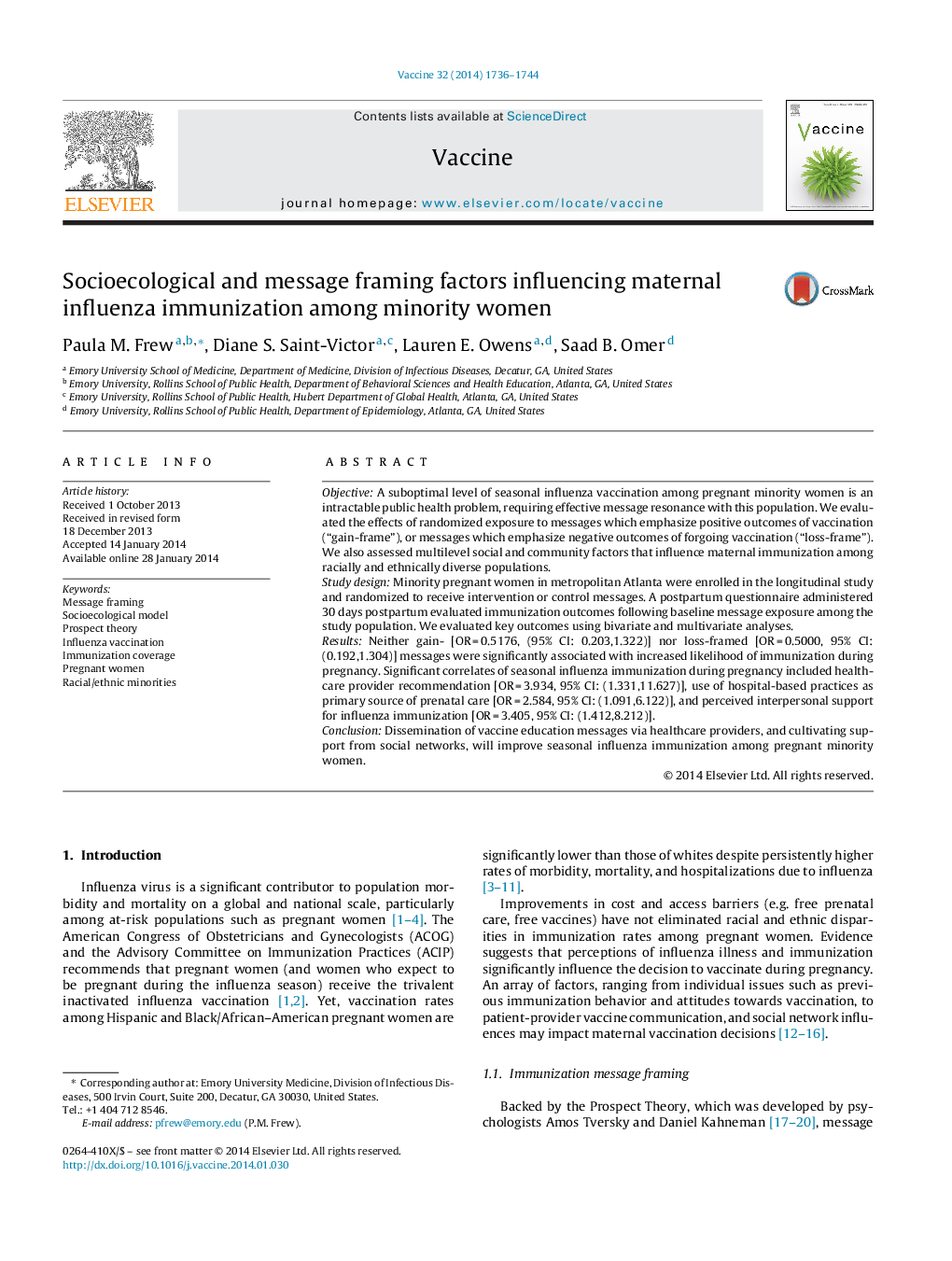| Article ID | Journal | Published Year | Pages | File Type |
|---|---|---|---|---|
| 2402257 | Vaccine | 2014 | 9 Pages |
ObjectiveA suboptimal level of seasonal influenza vaccination among pregnant minority women is an intractable public health problem, requiring effective message resonance with this population. We evaluated the effects of randomized exposure to messages which emphasize positive outcomes of vaccination (“gain-frame”), or messages which emphasize negative outcomes of forgoing vaccination (“loss-frame”). We also assessed multilevel social and community factors that influence maternal immunization among racially and ethnically diverse populations.Study designMinority pregnant women in metropolitan Atlanta were enrolled in the longitudinal study and randomized to receive intervention or control messages. A postpartum questionnaire administered 30 days postpartum evaluated immunization outcomes following baseline message exposure among the study population. We evaluated key outcomes using bivariate and multivariate analyses.ResultsNeither gain- [OR = 0.5176, (95% CI: 0.203,1.322)] nor loss-framed [OR = 0.5000, 95% CI: (0.192,1.304)] messages were significantly associated with increased likelihood of immunization during pregnancy. Significant correlates of seasonal influenza immunization during pregnancy included healthcare provider recommendation [OR = 3.934, 95% CI: (1.331,11.627)], use of hospital-based practices as primary source of prenatal care [OR = 2.584, 95% CI: (1.091,6.122)], and perceived interpersonal support for influenza immunization [OR = 3.405, 95% CI: (1.412,8.212)].ConclusionDissemination of vaccine education messages via healthcare providers, and cultivating support from social networks, will improve seasonal influenza immunization among pregnant minority women.
